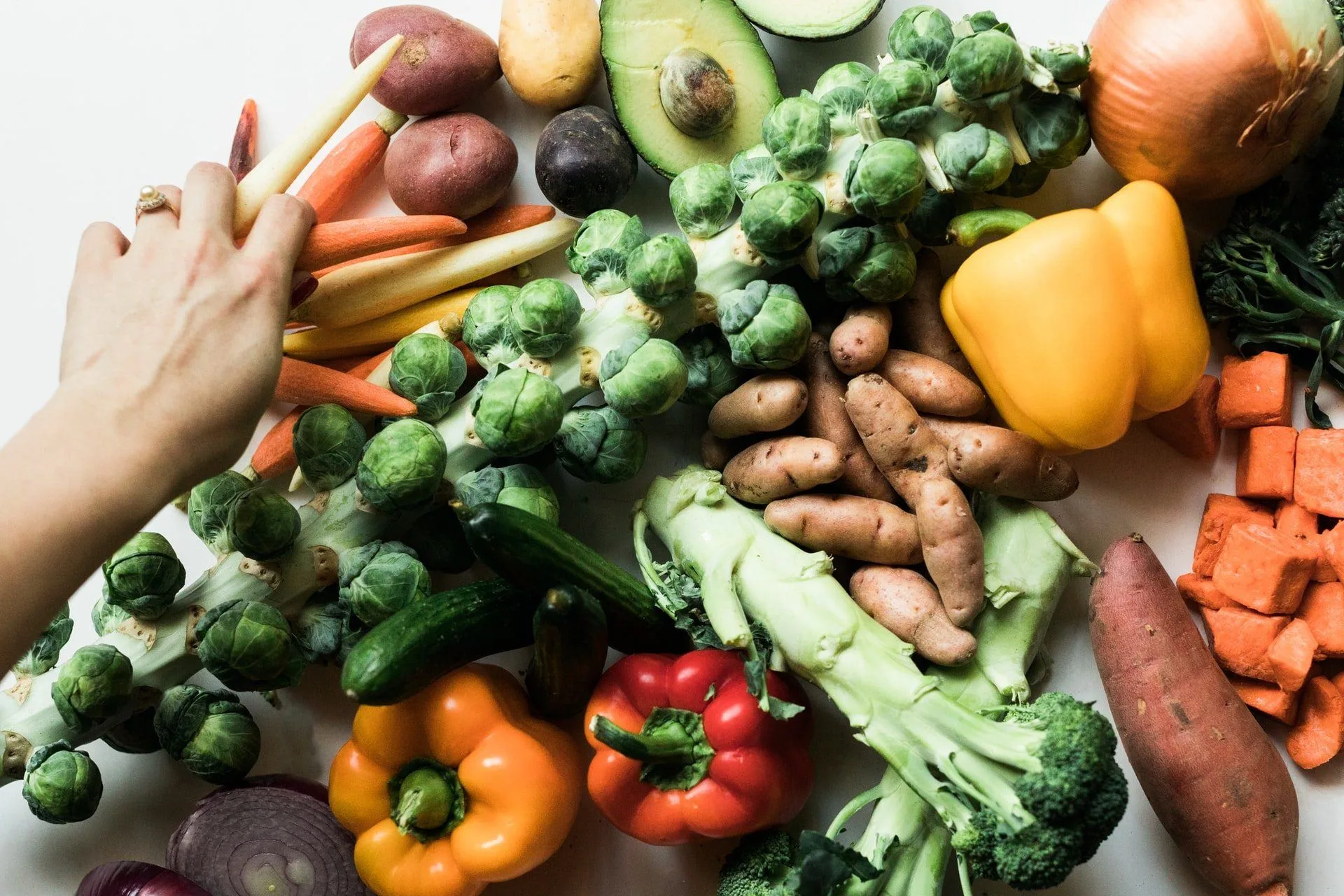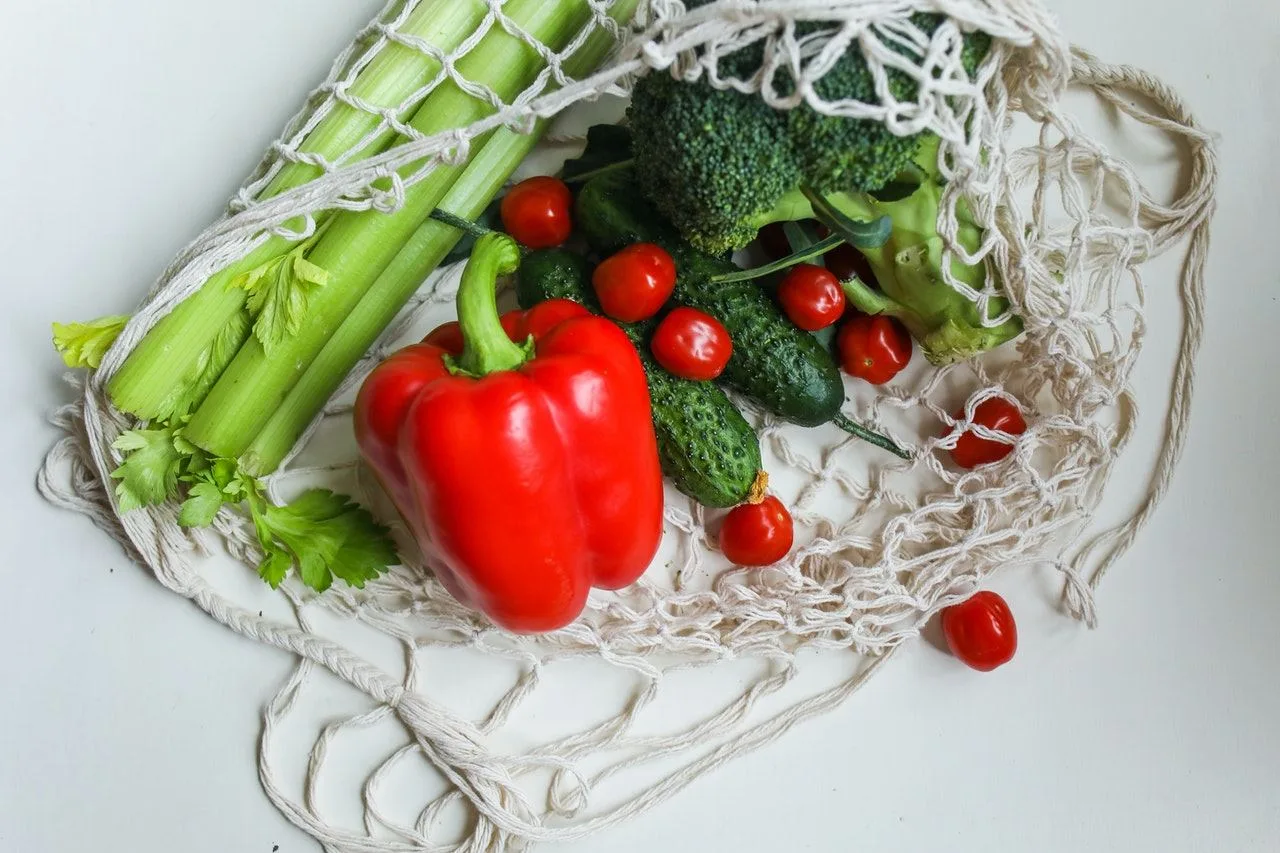It’s that time of the year where we each make promises to ourselves to eat healthier and to exercise more. Moreover, every January, we tell ourselves that we’re going to indulge in more vegetables in the coming year. Yes, eating more vegetables can help to keep us healthy in the next twelve months. But that’s not all. In fact, eating more veggies could also help make you happier.
Vegetables Can Boost Happiness, Study Finds
A study published in the Journal of the Academy of Nutrition and Dietetics set out to find an association between the number of vegetables that people eat and whether this had an impact on their happiness and psychological well-being.
The study

Photo by Nathan Dumlao on Unsplash
For the study, the researchers sought out 75 participants between the ages of 18 and 65, These participantso generally consumed a low amount of vegetables. The participants were then split into test and control groups, with the test participants being given a selection of fresh or frozen vegetables.
Over a period of 8 weeks, the test participants were advised to consume the amounts recommended in the Dietary Guidelines. This is about two to four servings per day – which is more than they are used to consuming. The control group, on the other hand, ate their usual diet.
The researchers then used the Subjective Happiness Scale (SHS) to assess happiness both before and after the 8-week study. The SHS asks four questions which have participants self-report their happiness level.
The findings
“SHS scores increased when the amount and type of vegetables recommended by the Dietary Guidelines were consumed,” –Shanon Casperson, PhD, DTR, a research biologist at the Grand Forks Human Nutrition Research Center, USDA-Agricultural Research Services, and one of the researchers on this study.
The researchers found that an increase in vegetable consumption, particularly one that meets the recommended USDA Dietary Guidelines, means an improvement in SHS scores.
The participants were given a large variety of vegetables to choose from. As such, the researchers were unable to point out which one vegetable is the best one for happiness. Nonetheless, Dr. Casperson advises that one consumes a wide variety of vegetables from all the colors of the rainbow each week.
Why do veggies make us happier?
A study published in BMJ Nutrition, Prevention & Health found that children who consume a diet rich in fresh fruits and vegetables report better mental health.

Photo by Jimmy Dean on Unsplash
So, which nutrients can make us happier?
Zinc, magnesium, iron, fiber, and vitamin E, which are found in abundance in vegetables, have been shown to help improve mental health. For instance, iron can be important for happiness in various ways. It can help restore sleep, minimize fatigue, support focus, and improve mood. Deficiencies in iron can result in mood changes and other adverse health effects.
Thankfully, you can support your iron intake by eating leafy vegetables, meat, cereals, and nuts. You can also take supplements rich in iron. For example, the mushroom capsules from Mushroom Revival and other similar websites are rich in iron, perfect for boosting energy level and having an overall feeling of wellness.
Moreover, magnesium can also make you happy. It plays a crucial role in the production of two hormones inside the body, namely dopamine and serotonin. As such, it can help you feel happier. To fuel your body with right levels of magnesium, you need to eat bananas, broccoli, green cabbage, ginger, spinach, and kernels.
Apart from magnesium, zinc can also be a contributor to the feeling of happiness. It can positively affect your mood by providing the hippocampus with the mineral it needs. Generally, the hippocampus in your brain is responsible for controlling mood and memory. Lack of zinc may result in mood problems, depression, and even aggression.
To improve your mood by making yourself happy, it’s best to consume foods rich in zinc like meet, legumes, shellfish, seeds, and cheese. With these foods incorporated to your healthy diet, you can take advantage of the benefits of zinc for your emotional and mental health.
Takeaway
Yes, achieving happiness does require a multi-faceted approach. However, it would be naive not to acknowledge the impact that diet can have.
By increasing your intake of plant-based foods, all while reducing your consumption of processed foods, you won’t only improve your mental health, but you’ll also give your physical health a great boost.
References
Botturi, A., Ciappolino, V., Delvecchio, G., Boscutti, A., Viscardi, B., & Brambilla, P. (2020). The Role and the Effect of Magnesium in Mental Disorders: A Systematic Review. Nutrients, 12(6), 1661. https://doi.org/10.3390/nu12061661
De Leon, A., Jahns, L., Roemmich, J. N., Duke, S. E., & Casperson, S. L. (2021). Consumption of Dietary Guidelines for Americans Types and Amounts of Vegetables Increases Mean Subjective Happiness Scale Scores: A Randomized Controlled Trial. Journal of the Academy of Nutrition and Dietetics, S2212-2672(21)01486-6. Advance online publication. https://doi.org/10.1016/j.jand.2021.11.009
Hayhoe R, Rechel B, Clark AB, et al. 2021. Cross-sectional associations of schoolchildren’s fruit and vegetable consumption, and meal choices, with their mental well-being: a cross-sectional study. BMJ Nutrition, Prevention & Health;e000205. doi: 10.1136/bmjnph-2020-000205
Lee, HS., Chao, HH., Huang, WT. et al. (2020). Psychiatric disorders risk in patients with iron deficiency anemia and association with iron supplementation medications: a nationwide database analysis. BMC Psychiatry 20, 216. https://doi.org/10.1186/s12888-020-02621-0



![women [longevity live]](https://longevitylive.com/wp-content/uploads/2020/01/photo-of-women-walking-down-the-street-1116984-100x100.jpg)










